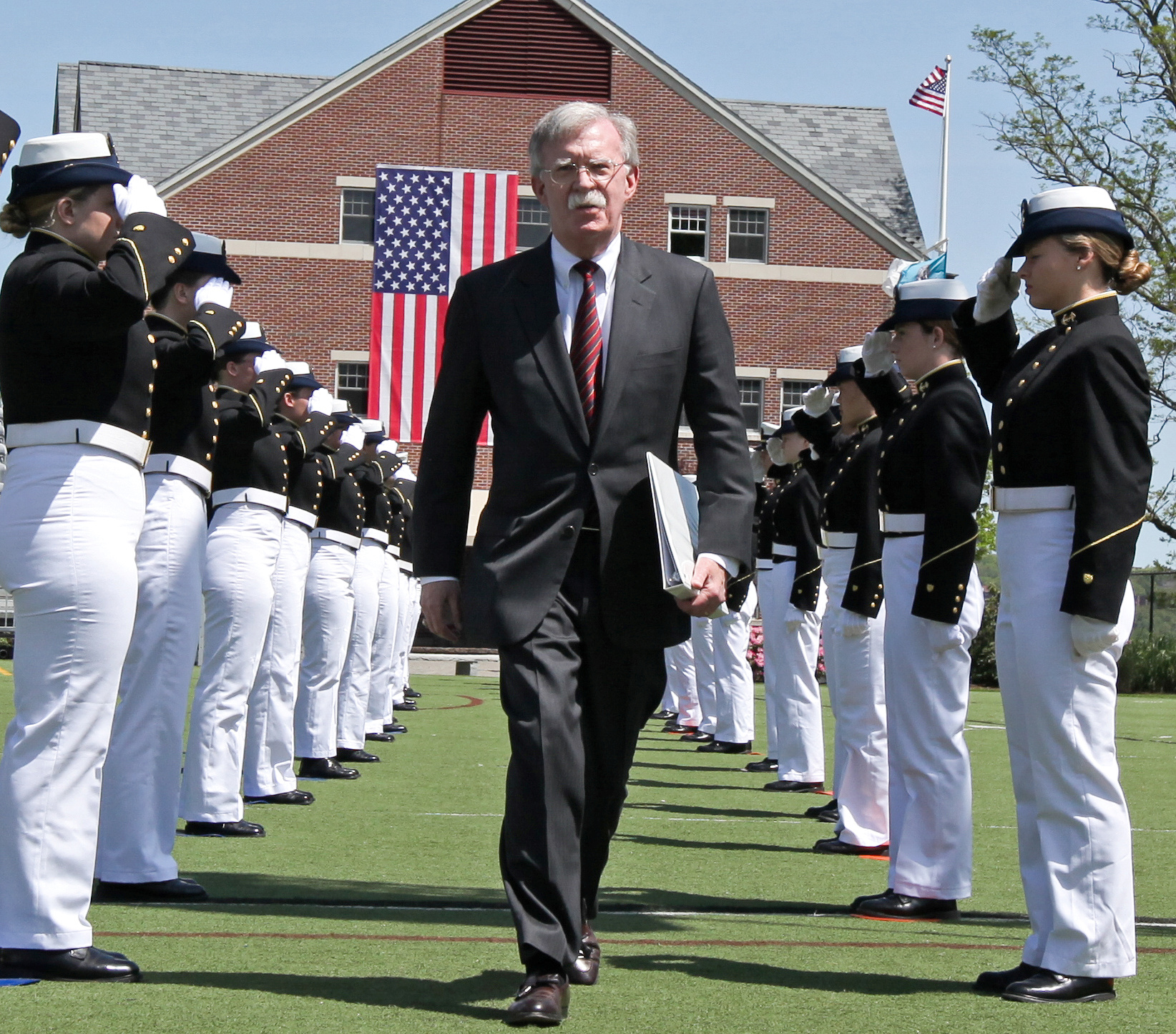With Coast Guard commencement speech, Bolton pushes the Trump administration’s newly aggressive Arctic stance
The national security advisor echoed Secretary of State Mike Pompeo's remarks earlier in May condemning Russian and Chinese activity in the region.

We now see that John Bolton, President Donald Trump’s national security adviser, is not going to take a back seat to Secretary of State Mike Pompeo when it comes to overly aggressive rhetoric about the Arctic.
As a commencement speaker at the U.S. Coast Guard Academy May 22, Bolton sounded a militaristic Arctic theme for the Coast Guard, which is in keeping with his bellicose approach.
He mentioned disaster response and search-and-rescue operations, but his focus was elsewhere.
“As members of the Coast Guard you will help the United States challenge growing Russian military influence in the Arctic and push back against China’s illegitimate claim to near-Arctic status, as well as its use of debt diplomacy against Arctic nations,” Bolton said.
Exactly how this pushback would play out is something about which the tough-talking Bolton and others haven’t a clue.
Let’s start with this — Bolton’s portrayal of the Coast Guard’s current and future capabilities is divorced from reality.
In his remarks to the graduates, he didn’t tell the truth about the Coast Guard budget from the Trump administration, suggesting that Trump is eager to build a giant fleet of icebreakers.
In April, the U.S. government signed a $745 million design and construction contract for its first new heavy icebreaker in decades.
With this single vessel, according to Bolton, “the Coast Guard will lead the way in reasserting American leadership in the Arctic, which has been neglected far too long.”
“This is but the first of many icebreakers the president plans to introduce to rebuild our aging fleet,” said Bolton, giving the false impression that the icebreaker was funded because of Trump.
It is true that the contract with VT Halter Marine Inc. of Pascagoula, Miss. could be worth up to $1.9 billion if options to build two additional ships are exercised.
Before that happens, the money needs to be appropriated and Trump hasn’t shown that he wants to lead that fight, which Bolton didn’t mention.
“Armed with these new innovative tools, the Coast Guard will enable a year-round persistent U.S. presence in the polar regions,” he told the Coast Guard graduates. “The United States is an Arctic nation with enduring national interests in that region. Like our Arctic allies and partners, we want the high north to be a region of low tension where no country seeks to coerce others through military buildup or economic exploitation. While we encourage commercially driven economic development by the international community we need to reserve Arctic governance for Arctic nations. “
The Trump administration’s often-repeated priority is to spend billions in homeland security money to build a wall with Mexico — the push to add icebreakers has come from Congress and that will continue.
Trump’s latest budget proposes spending $11.3 billion on the entire Coast Guard — about $700 million less than the last budget.
The Coast Guard has a $1.7 billion backlog in deferred maintenance and its leaders have warned of serious consequences of this continued neglect. Inflation has eroded 10 percent of the agency’s buying power over the last eight to 10 years.
Leaving aside the real questions about why diplomacy in the Arctic is ignored by key Trump advisers who favor threats and intimidation, it’s striking that Bolton won’t admit the obvious mismatch between his exaggerated language about what might happen with ships that don’t exist and conditions as they are today.
Dermot Cole can be reached at de*********@gm***.com.
The views expressed here are the writer’s and are not necessarily endorsed by the Arctic Initiative or ArcticToday, which welcomes a broad range of viewpoints. To submit a piece for consideration, email commentary (at) arctictoday.com.